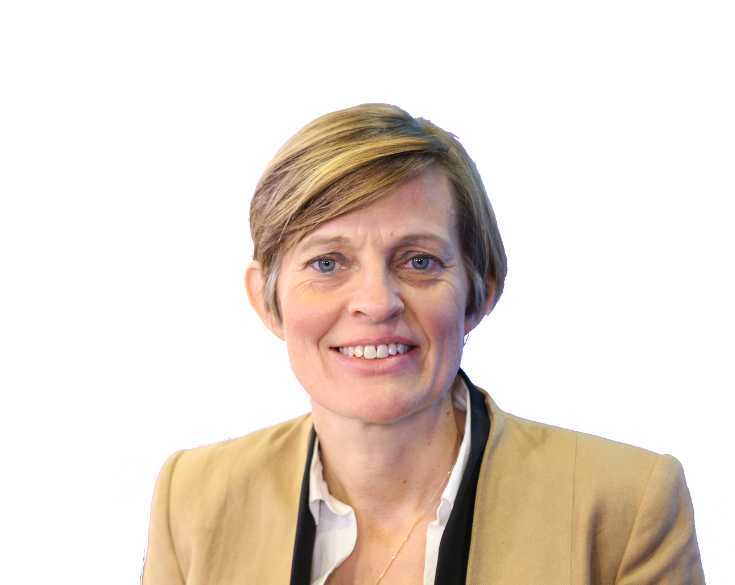
Imagine receiving the shattering news that your daughter has cancer. Suddenly, you're battling for her life. In the midst of treatment, you're asked to sign a flurry of consent forms for her tissue to be donated for scientific research.
Seeking to help others devastated by the same cruel disease, you agree. But in a twist, you're never told how her tissue samples are actually being used — or if they ever get used at all.
You wouldn't be alone. I lead the Children's Tumor Foundation, a nonprofit dedicated to fighting a rare genetic disease called neurofibromatosis, or NF. There's no cure for the condition, which causes tumors to grow on nerves. The families I work with are desperate for treatments. That's why they sign the many lengthy "informed consent" documents presented to them at hospitals, asking for permission to use tissue taken for research. But they have no control over how those samples are eventually used. Often, specimens simply collect dust on shelves.
The same thing happens frequently to older cancer patients and those battling other diseases. Many have undergone a biopsy or provided another tissue sample for the purpose of testing or treatment. They often wrongly assume that their samples will be used to aid research and so sign out of a wish to help others.
Unlike organ donation, the market for "biomaterial" is largely unregulated. Hospitals typically provide it to what are known as biobanks, storage facilities that enter into partnerships with hospitals to gain access to tissue.
While health care providers must obtain patient consent for donations, they're not required to tell patients that their tissues may be stored in a biobank — or that researchers may never have access to their samples.
Currently, biobanks often impede medical progress by hoarding specimens. I know firsthand that a lack of access to tumor samples and cell lines is a major problem for NF research. I regularly encounter obstacles in helping researchers obtain these materials. While biobanks require skilled oversight and are expensive to maintain, biobank directors often employ unreasonable excuses for creating "tissue silos" and refusing to share samples and data: the cost of international shipping, complex regulatory rules and arbitrary institutional restrictions. But patients aren't informed of any of these impediments when they're asked to donate.
Even when biobanks do provide specimens to researchers, they typically choose those with whom they have strong personal relationships or who can help them publish in prestigious publications. That means researchers in many fields lack access to tissue that would validate their hypotheses.
Things are especially difficult for researchers in the life sciences industry, particularly those at smaller biotech companies. Small bioscience firms and startups are pursuing groundbreaking research on a wide range of diseases, but without personal connections at biobanks, they frequently lack the ability to access samples that could help them develop cutting-edge treatments.
Most cancer patients want to support research, even if they don't stand to benefit directly. But it's deeply unfair to take someone's tissue or bone marrow without telling them how such tissue will be used — or giving them a say in who gets to use it.
Beyond basic ownership, patients should have more input on how their biomaterial is used. They should be able to decide for themselves which researchers receive their specimens — or consult with trusted patient organizations to make such decisions. They should also have the option to donate only to nonprofit biobanks, or to stipulate that access to their material shall not be restricted at all.
Moreover, it's imperative that patients have access to any relevant data on discoveries made with their tissues. Providing them with such information would enable them to personally understand how their decision to donate supports medical research.
While some biobanks tout a commitment to valuing patient input, these proclamations are little more than window dressing in practice. To give patients a real say in the tissue donation process, we need patient committees for biobanks at large hospitals. Numerous studies have found that public involvement in biobanks bolsters long-term medical research and ensures more samples end up in laboratories.
Patient advocacy groups have a critical role to play as well. My own organization has invested time and effort in finding biobanks that put patients first. We collect NF patient tissue samples and store them at a commercial biobank in Frederick, Maryland, and Indiana University's biobank in Indianapolis — both sites guarantee broad researcher access and consult patient committees. But because NF is so rare, these banks have only a limited number of available samples — so research is still hindered by "biobank politics."
Patients deserve transparency and influence when it comes to how their own tissues are used for research. Empowering them to make informed decisions will help accelerate medical progress for the greater good.
Annette Bakker is president of the Children's Tumor Foundation.
(COMMENT, BELOW)
Chicago Tribune
(TNS)


 Contact The Editor
Contact The Editor
 Articles By This Author
Articles By This Author